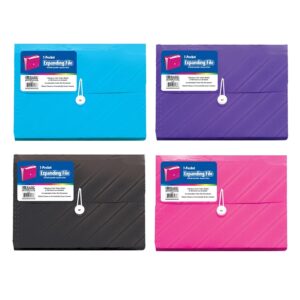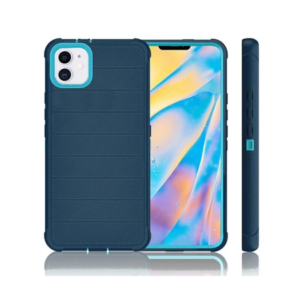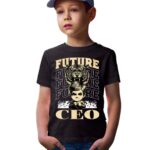Introduction
In today’s lively and diverse world, variety is not just a passing fad; it’s essential, particularly in marketing. As companies try to reach a wider audience, including diversity in marketing customizable products is very important. Why? Because people want to see themselves in the products they buy. This ensures that their individual tastes and requirements are met. Recognizing the different needs of consumers is crucial for developing marketing strategies that connect with everyone, everywhere.
Understanding Diversity in Marketing

Definition and Importance of Diversity in Marketing
Diversity in marketing means recognizing, accepting, and including many different types of people, like those from different cultures, ethnic groups, genders, ages, and other unique traits, in marketing plans. This broad approach helps a brand communicate with a constantly changing, diverse group of people. But why is diversity important in marketing?
First, it gives brands a chance to reach a larger, more varied group of people. By showing different viewpoints, a brand can better connect with consumers from all kinds of backgrounds. This not only strengthens loyalty to the brand and improves its reputation but also increases profits. In short, diverse marketing strategies can lead to a bigger share of the market and better positioning in new markets. It tells consumers, “We care about you and your individual needs and experiences.”
Marketers need to remember that today’s consumers are smart and careful. They prefer to connect with brands that make them feel noticed and understood. This is why diversity should be a key part of any modern marketing strategy.
The Impact of Cultural Diversity on Consumer Behavior
Cultural diversity greatly affects how people make choices as consumers. Different cultures have unique values and beliefs that shape their shopping habits. For instance, what attracts one group of consumers might not appeal to another.
Marketers who grasp these cultural differences can design campaigns that specifically cater to the tastes of various cultural groups. This approach helps them gain the trust and loyalty of their audience. When consumers see their culture reflected in a brand’s marketing, they are more likely to support that brand.
Consider this example: Colors can have different meanings in various cultures. In Western cultures, white often represents purity, but in some Eastern cultures, it can signify mourning. Recognizing these subtle differences can either make or ruin a marketing campaign. This is why marketing that respects and celebrates cultural diversity is so important.
The Rise of Customizable Products
Why Customization is Gaining Popularity
In today’s busy world, people want to feel unique and special. They don’t want to be just another person in a large group; they want products that match their own likes and needs. This is where customizable products come in, letting people change things like color, size, material, and even how the product works to fit their tastes.
Customization is becoming more popular because it gives people more control. It makes them feel like they own the product and have a say in how it’s made. This personal touch makes customers happier because they feel important and part of the creation process. Think about making your own shoes or choosing a skincare routine that’s perfect for your skin type. These are examples of how customization gives a special, personal feel that standard products can’t offer.
Additionally, in a time when social media is very popular, showing off a special, unique product is another big reason why people like to buy things. Who wouldn’t want to share a personalized gift or a special item on Instagram? This desire for something unique is helping the trend of making things custom.
Examples of Successful Customizable Products
Some of the most successful companies have used the idea of customization to grow their business. Let’s look at a few examples:
– Nike iD: Nike lets customers design their own sneakers using the Nike iD service. They can pick the sole type, materials, and colors, giving sneaker fans a special experience they love.
– Build-A-Bear Workshop: This company offers a fun way to customize teddy bears. Customers can choose the bear’s clothes, accessories, and even record their own voice messages, making each stuffed toy very special.
– Coca-Cola’s Personalized Bottles: Remember the “Share a Coke” campaign? Coca-Cola put first names on their bottles instead of the usual logo, making sharing a Coke feel more personal. This campaign increased how much people liked the brand and how much they bought.
These examples demonstrate how customizable products can create memorable experiences, driving both customer satisfaction and brand loyalty.
Customizable Products as a Response to Diverse Consumer Needs
Different customers have different needs, and this is especially important when it comes to customizing products. Customizable products are made to meet the various wants and needs of a wide range of customers. Not everyone wants the same thing. What one person thinks is the perfect product can be very different from what someone else wants, depending on things like their culture, personal likes, and what they need the product to do.
For example, think about the different dietary needs when it comes to customizable meal kits. Some people might be following a ketogenic diet, others might be vegan, and some might have allergies to certain foods. By offering meal kits that let customers choose specific recipes or ingredients, we can make sure that each person’s unique dietary needs are met.
This idea isn’t just about food. In the beauty world, personalized makeup and skincare are getting more popular, especially for people with different skin colors and types. Selling products that can be adjusted to fit specific skin needs or tastes is a great example of inclusive marketing.
In the end, customizable products show that we value different tastes by recognizing and meeting a wide range of customer needs. They show a brand’s dedication to understanding and helping their customers in ways that go beyond a simple, one-size-fits-all approach, truly appreciating diversity.
So, using diversity in marketing, along with the growth of customizable products, has a lot of promise. It helps brands connect more deeply with a wider audience, encouraging inclusivity and leading to more meaningful connections between brands and customers. In a world that values individuality and personal connections, this combination is more than just a passing fad.
Strategies for Inclusive Marketing

When we start looking at products that can be personalized, it’s really important to know that the key to doing well is using marketing that includes everyone. Let’s talk about some ways companies can make sure their message reaches a wide and welcoming audience.
Developing a Diverse Marketing Team
Creating a strong team with varied backgrounds is key to effectively marketing customizable products. This is because a diverse team offers many different viewpoints, experiences, and ideas that can appeal to a wide range of customers. Here’s how to do it:
– Hire from various sources: When looking for new team members, don’t just stick to the usual places. Look into different communities, colleges, and professional groups to find new talent.
– Promote open communication: Make sure everyone on the team feels comfortable sharing their unique ideas. Regular brainstorming meetings can lead to creative solutions that work for different markets.
– Provide training: Offer training on understanding and respecting different cultures. This helps team members better understand the behaviors and preferences of diverse customers.
A team that mirrors the diversity of its customers can create messages that truly connect, leading to more successful marketing plans.
Creating Culturally Relevant Marketing Campaigns
In today’s global market, where many cultures mix, it’s very important for companies to create marketing campaigns that are meaningful to different cultures. Here’s how brands can make campaigns that really connect with various groups of people:
– Research is very important: Before starting a campaign, learn a lot about the culture, values, and traditions of the people you want to reach. This shows that you respect and care about their way of life.
– Adjust your words and pictures: Use words and images that match the cultural details of the audience. Avoid using stereotypes and instead show real and true representations.
– Work with cultural experts: Get help from consultants or team up with local influencers who know and live the culture you’re trying to reach. Their knowledge can help make sure your campaign works well.
By making campaigns that match the special traits of each culture, brands can build stronger relationships with their diverse audience.
Utilizing Consumer Feedback for Better Customization
Paying attention to what your customers want and changing your approach based on that is not just a good idea—it’s crucial in today’s market. Products that can be customized to fit individual needs do well because they understand and meet those needs, and customer feedback is the best way to make that happen:
– Collect feedback regularly: Use methods like surveys or focus groups to get input from customers on a regular basis. The more you know about what they want, the better you can adjust your products.
– Make changes based on feedback: Show customers that you listen by making real changes based on their suggestions. Whether it’s adding new customization options or improving existing ones, visible changes build trust.
– Acknowledge their input: When you use customer ideas, let them know. You can do this by giving them a shout-out on social media or including their stories in your marketing.
By valuing and using customer feedback, brands not only improve their products but also build a stronger connection with their audience.
Benefits of Diversity in Marketing
Investigating the positive impact of diversity in marketing customizable products reveals many benefits, such as increasing brand loyalty and broadening market reach. Let’s explore these main advantages.
Increased Brand Loyalty
Diversity in marketing means creating strong, loyal relationships with customers. As companies use inclusive marketing strategies, they make products and campaigns that truly appeal to different groups of customers.
– Personal connection: When customers see themselves in a brand’s products, they are more likely to feel a personal connection. This often leads to repeated purchases and recommending the brand to others.
– Trust and reliability: A brand that consistently shows it understands and respects diverse cultures and preferences builds trust with customers, which leads to long-term loyalty.
In short, brands that truly embrace diversity not only attract customers but also keep them coming back.
Enhanced Customer Engagement
Different marketing approaches can greatly improve how much customers interact with your brand. Interaction isn’t just about getting noticed—it’s about making connections that matter and inspire people to take action.
– Fun activities: Design campaigns that get people involved, fitting their interests and backgrounds. Whether it’s social media contests or online events, connecting with customers in ways they enjoy is important.
– Brand family: Build a community by appreciating different cultures and encouraging people to share their thoughts. This can happen through online chats, customer-made content, or community gatherings.
By being inclusive, brands can make customers feel important, which boosts their involvement and connection with the brand.
Expanded Market Reach
Different marketing strategies can help businesses enter new markets that were previously hard to access. By recognizing and celebrating cultural diversity and individual preferences, companies can expand their influence beyond usual limits.
– Worldwide attraction: Products that can be customized and are marketed in diverse ways can draw in customers from around the globe, increasing market possibilities.
– Specialized markets: Meeting the unique needs of certain cultures or communities can also engage smaller, specialized markets that might not have been considered before.
A broader reach means more chances to increase sales and grow, making diversity in marketing not just helpful, but crucial.
Positive Brand Image
A company’s reputation is strongly linked to how people see it in terms of being inclusive and diverse. By focusing on diverse marketing strategies, companies can create a good reputation that connects with today’s thoughtful consumers.
– Social responsibility: Showing a commitment to diversity and inclusion not only attracts customers but also makes the brand look like a responsible and good company.
– Media attention: Brands that are known for their diversity efforts often get good media coverage, which helps improve their reputation and make more people aware of them.
In the end, a good brand reputation based on diversity principles brings in more customers and supports the overall value of the brand.
In summary, offering customizable products with diverse marketing approaches brings significant advantages. By building loyal customer groups and increasing market presence, focusing on inclusivity is crucial for success in today’s fast-changing market. Whether by creating diverse teams, designing culturally appropriate campaigns, or using customer feedback, brands that emphasize diversity are better equipped to meet and surpass the needs of their varied customer base. As businesses continue to engage with the diverse global cultures, the importance of diversity will continue to be a central aspect of successful and innovative marketing strategies.
Challenges and Opportunities

In today’s fast-changing market, businesses deal with many challenges and chances when they focus on diversity in creating customizable products. Understanding these can help in making marketing plans that work well for a wide range of customers. Let’s look at some of these challenges and the possible benefits they offer.
Overcoming Bias in Marketing
One of the main challenges in marketing to different groups of people is dealing with hidden biases. These biases can accidentally show up in marketing efforts, making potential customers feel unwelcome and harming the brand’s reputation. To handle this, companies need to:
– Be Aware and Educate: Brands should first recognize any hidden biases in their marketing teams and company culture. Regular training on inclusivity and diversity can help employees become more aware, allowing them to spot and fix biases in their work.
– Have Diverse Teams: Building marketing teams that include people from different backgrounds can give a better understanding of what customers want and like. Diverse teams are more likely to come up with creative ideas and strategies that appeal to different groups of people.
– Creating Inclusive Content: It’s important to make sure that all marketing materials are made with inclusivity in mind. Companies should try to use language, traditions, and images that represent the different backgrounds of their target audience.
Navigating Multicultural Marketing Environments
Another big challenge is dealing with marketing in different cultures. Each culture has its own values, traditions, and likes, which can change how people see certain products and services. Here’s how companies can handle this:
– Understanding Culture: Companies need to do a lot of research to learn about the different cultural details and what people like in their target groups. What works for one culture might not work for another, so knowing these differences is very important.
– Working with Locals: Partnering with local influencers and community leaders can give important information about cultural feelings and help companies build trust and real connections with their audience.
– Customized Campaigns: Instead of using a single method for everyone, companies should adjust their marketing strategies to meet the unique needs and preferences of different cultural groups. This might mean changing the way they communicate, the images they use, or even the features of their products to match cultural expectations better.
Opportunities for Brands Embracing Diversity
Despite the challenges, brands that effectively use diversity in marketing customizable products have a lot to gain. Here’s what they can expect:
– Wider Market Reach: By targeting different groups of people, brands can greatly increase their customer base. Customizable products are especially attractive because they let customers tailor the products to their own preferences and needs, drawing in more people.
– Stronger Customer Loyalty: Brands that show a strong commitment to diversity and inclusion often build stronger, more loyal relationships with their customers. People are more likely to support businesses that respect and represent their identities.
– Improved Brand Value: Including diversity in marketing strategies can improve a brand’s value. A brand seen as inclusive, innovative, and socially responsible can enhance its reputation and stand out in a competitive market.
To sum up, although creating inclusive marketing has its difficulties, the benefits it offers can help brands reach new levels and create a more inclusive business atmosphere. Companies that actively work to understand and include diversity in their plans are not only better at meeting the needs of different customers but also set themselves up as leaders in today’s market.
Conclusion
In a world that values uniqueness, it’s more important than ever for businesses to offer a variety of customizable products. By understanding and meeting the different needs of their customers, companies can create items that are not only attractive but also significant to various groups. This method encourages inclusive marketing, making sure everyone feels included. Businesses that follow these ideas will not only succeed but also develop strong connections with customers who appreciate personalization and inclusiveness. Let’s support diversity and discover countless opportunities in the market!









